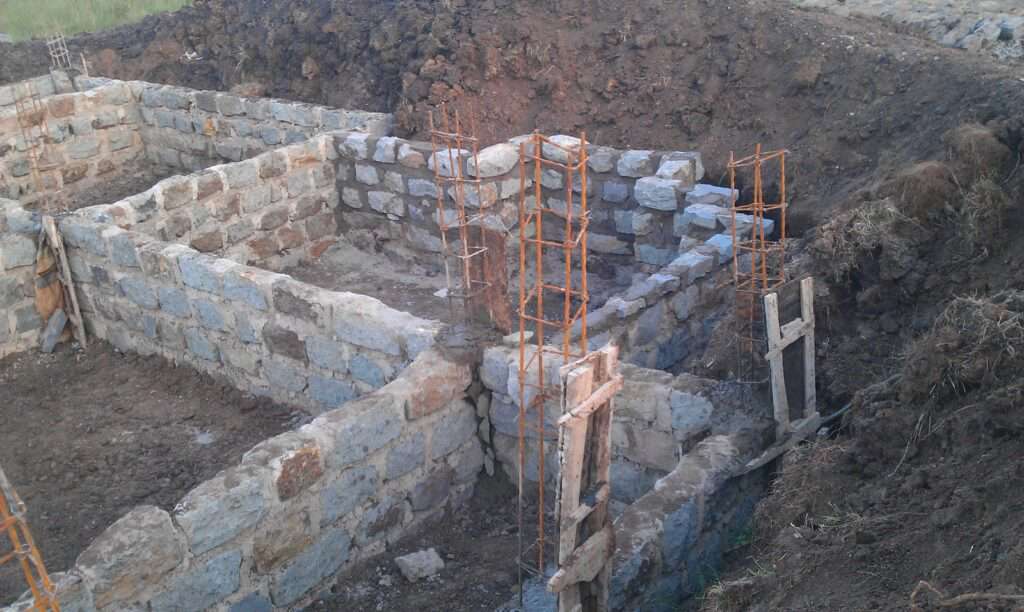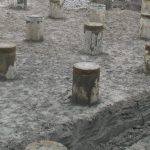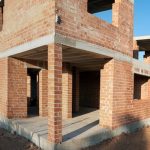
Black cotton soil swells during rainy season and cracks in summer due to shrinkage. These shrinkage cracks are 100 mm to 150 mm wide and 0.5 m to 2 m deep. Swelling creates upwards pressure on the structure and shrinkage creates downward pull. It results into cracks in foundations wall and roof.
Hence foundation in black cotton soil need special care.In case black cotton soil is only to a depth of 1.0 m and 2.0 m it is economical to remove entire black cotton soil from the site and build the foundation on red soil. Apart from this black cotton soil should be removed from the sides of the foundation and filled with sand and gravel. In case the depth of black cotton soil is more, the following type of foundation may be provided
1. Strip or pad foundation
2. Pier foundation with arches and
3. Under reamed pile foundation.
1. Strip or Pad Foundation: Strip foundation are for walls while pad foundations are for columns. In these foundation the attempt is to keep black cotton soil from foundation by interposing layers of sand and gravel. These foundations should be constructed during dry season. Suitable plinth protection should be made around external walls with its slops away from the wall, so that moisture do
not penetrate the foundation during rainy season.
2. Pier Foundation with Arches: A pier is a vertical columns of relatively larger cross-section than piles. For walls carrying heavy loads, piers are dug at regular intervals and filled with plain concrete.These piers are taken up to good bearing strata. Then the piers are connected by concrete or masonry arch. Over these arches regular masonry is built.
Under Reamed File Foundations: Under reamed piles are bored and then concreted at the sites.Their length may vary from 3 to 6 m. They are provided with reams and reinforcement. The pile spacing varies from 2 to 4 m. The top of piles are provided with capping beams over which walls are built.
Super Structures



Comments are closed